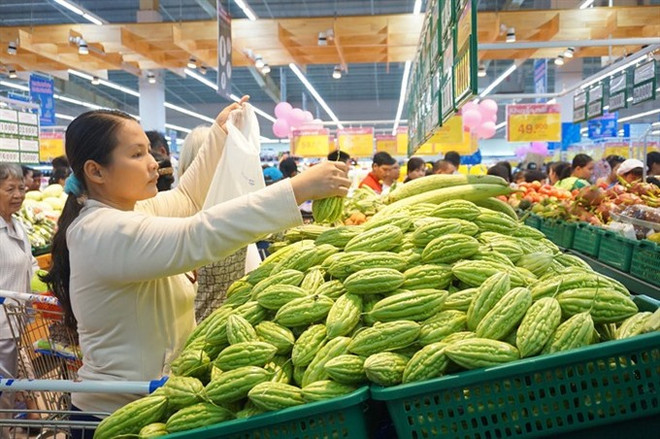Hanoi (VNS/VNA) - Although the coldchain logistics sector in Vietnam is considered small and fragmented, themarket has shown signs of improvement due to the increasing demand for highquality products.
With the foundation of agricultural productionand rapid economic growth, Vietnam is facing challenges in food waste as wellas difficulties in logistics management for cold and cool supply chains.
According to David Appel, President of CarrierTransicold & Refrigeration Systems, cold chain logistics have long beenfragmented in Vietnam, with small- and medium-sized service providers offeringonly localised services and not for the entire food supply chain.
Meanwhile, the traditional trade channelaccounted for 86 percent of the value of retail contributions in Vietnam suchas markets, grocery stores, restaurants and distribution systems.
The Vietnam Academy of Agricultural Sciencesonce reported that in Vietnam, the cold storage stage is only focused onseafood products because they are mainly exported, while other agriculturalproducts do not use cold storage.
Together with increasing demand for quality foodfrom consumers, food supply enterprises are beginning to have stricter demandsin the quality of cold logistics services, prioritising the application ofinformation technology systems in operational management, supervision andcompliance to ensure food safety and hygiene.
Chad Ovel, General Director of Mekong Capital,said the freshness of food is an important factor, deciding the number ofcustomers buying and returning. This promotes the development of the market andthat is the reason why Mekong Capital decided to invest in a cold chainsupplier in Vietnam.
Over the past ten years, the capacity of coldchain supply in Vietnam has increased four times and the infrastructure isoften operated with a capacity of over 90 percent, Appel added.
Currently, the cold chain logistics market in Vietnamrecognises the presence of foreign investors mainly developing large-scale coldstorage systems such as CLK Cold Storage, FM Logistics and Emergent Cold. Mostdomestic enterprises hold the transport market of cold products, including TanBao An and ABA Cooltrans.
ABA Cooltrans’ representative said speed ofdevelopment and urbanisation, as well as modern distribution systems, will bethe premise for developing value chains, including cold supply investment inthe value chain.
In fact, the cold logistics market is in adevelopment stage with great potential, and it is expected that more businesseswill join this market. The opportunity to cut down on food waste and improvefood distribution will be more effective through the application of coldstorage technology.
However, to be able to apply the technologysuccessfully and effectively, it is necessary to understand the actual needs ineach locality and market.
This means that Vietnamese supply chain serviceproviders need to understand what their customers want. Enterprises must besure about this issue to provide optimal solutions for the supply chain,thereby improving the procurement process.
At the same time, in order to compete and createtrust for customers using the service, businesses will need more breakthroughsin quality, cargo temperature must be ensured and maintain a cold chain duringoperation, experts suggested.-VNS/VNA





























